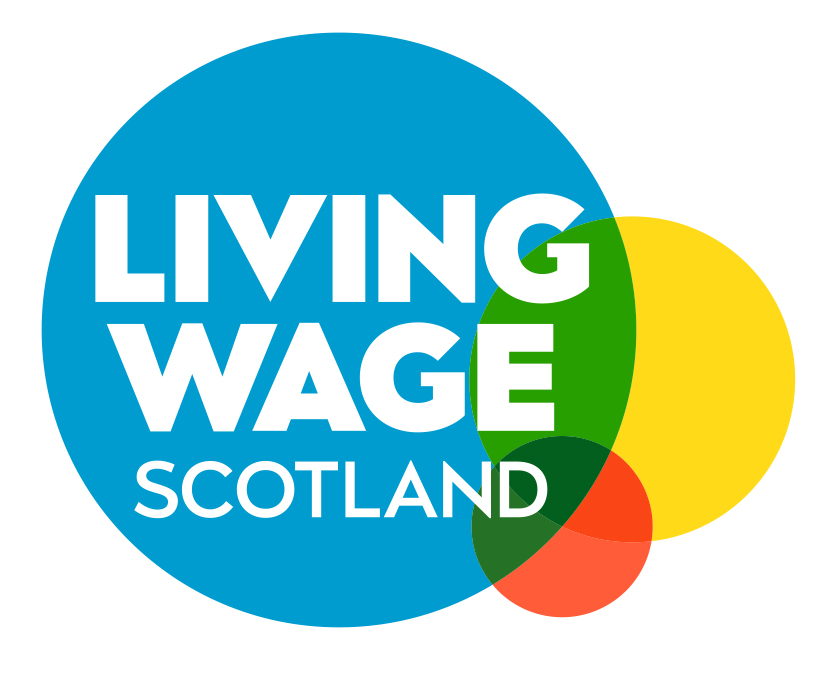By Andy Kerr, Executive Advisor, ENABLE Scotland
This week is Living Wage Week, an annual celebration of the Living Wage movement across the UK which ENABLE Scotland are proud to be a part of.
The real Living Wage is the only rate independently calculated based on what people need to earn to meet their living costs.
There are now more than 2,400 accredited Living Wage employers in Scotland, including more than 80 social care providers;, 22 of whom have joined since the start of the Covid-19 pandemic.
ENABLE Scotland were accredited in November 2020. We are one of the largest Living Wage accredited social care employers in the country, with over 2,200 staff, including 1,800 working in frontline care roles.
The increasing number of social care employers gaining accreditation is a sign of the great progress made in the payment of the real Living Wage in the sector within the last year. . This has in part been made possible through the funding support provided by the Scottish Government since the start of the pandemic, and their announcement of funding for a £10.02 per hour rate of pay for frontline care workers from December 2021 provides further evidence that the case for a real Living Wage is being heard.
However, for now, there are still thousands of workers in the wider social services sector across Scotland who continue to earn below the real Living Wage. The sector employs over 200,000 people and makes up 8% of the total Scottish workforce.
It’s important to highlight that the announced pay rise to £10.02 per hour covers only adult social care workers and doesn’t cover services such as children’s’ services and ancillary roles within the care sector, which are often paid below the real Living Wage but are vital to the functioning of the care system. These roles include admin staff, drivers, housekeepers, maintenance workers and kitchen assistants. Changes to the funding and commissioning of social care will have a crucial role to play in ensuring that all members of the social care workforce can be properly rewarded and remunerated for the work they do.
Care work is a heavily gendered profession. The sector is hugely supported by women workers who make up 83% of the social care workforce in Scotland.
Historically, caring has been gendered as women’s work, and today this is reflected in the undervaluation of care work within the labour market. This can lead to the assumption that working in the sector is just a “job” rather than a career choice, and a role supporting someone to live a full life is viewed by some as low skilled and low value. This could not be more wrong. Roles within the care sector are highly skilled, with many staff conducting multi-functional and demanding roles over long hours, and making a real difference to the quality of life and outcomes for the people they work for.
As we face further recruitment challenges within the sector- and I would say it’s not too strong to call it a crisis – we must ensure that we keep staff within the sector.
One way to do this is to pay the real Living Wage across the board. Low pay is the biggest contributor to challenges to recruiting and retaining staff. Staff are understandably leaving the social care sector to work in industries where they can receive a higher wage for less stressful roles. The growing number of accredited social care providers highlights how employers are increasingly recognising the benefits of paying the real Living Wage to help with recruitment and retention challenges – but we still need to go further.
We need to tackle the undervaluation of the social care sector that sees low pay as the norm, and shift attitudes to see the value of every worker within the sector.
It cannot be right that some of our country’s most vulnerable citizens are relying on our most vulnerable workers.
Workers within the social care sector must be valued for the critical role they play in supporting people who need a bit of extra help to live the life they choose. We can start by ensuring every worker has a wage that lets them pay their bills and gives them the security to bring their best selves to work every day.
This Living Wage Week, we want to see more social care employers join the real Living Wage movement. Accreditation means all directly employed staff and regular contracted workers aged 18+ are paid at least the real Living Wage. Get in touch with Living Wage Scotland to discuss accreditation for your organisation.

